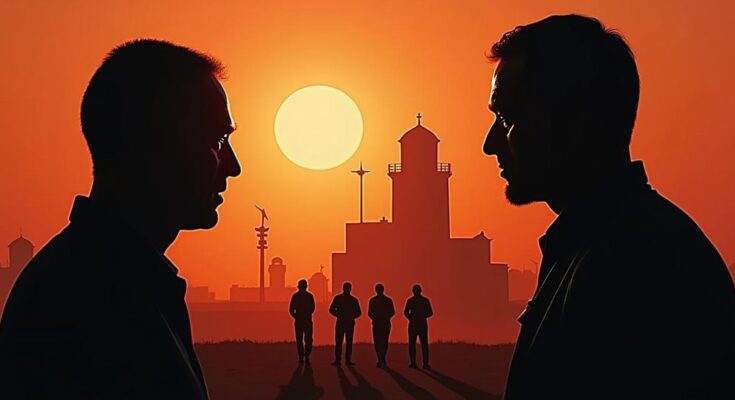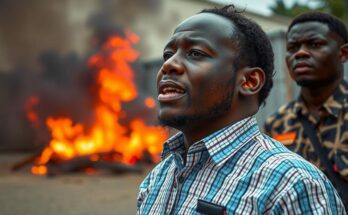Tunisia’s President Kais Saied is poised for re-election in a controversial atmosphere marked by political repression and the imprisonment of one of the few challengers. Since taking office in 2019, Saied has centralized power and curtailed democratic freedoms, leading to widespread criticism and protests. This election occurs under a significant shadow of dissent, as many opposition members have been excluded and public interest appears diminished, raising questions about the legitimacy of the upcoming vote.
Tunisia’s President Kais Saied is seeking re-election in an upcoming vote, amid a backdrop of significant political manipulation and suppression of dissent. Despite over a dozen potential challengers, the electoral commission has allowed only two candidates, one of whom, Ayachi Zammel, is currently imprisoned for alleged document falsification, just days before the polls. This election marks the third presidential vote in Tunisia since the removal of autocratic leader Zine al-Abidine Ben Ali in 2011, following the Arab Spring, which initially symbolized a move towards democracy in the region. Since assuming office in 2019 with a promise of reform, President Saied has concentrated power in the executive branch, suspended parliament, and rewired the constitution, leading critics to label him an autocrat rather than a reformer. Senior figures from Tunisia’s largest opposition party, Ennahda, have faced unprecedented levels of arrest under Saied’s regime, and Human Rights Watch has reported a systematic exclusion of other viable candidates through legal means. Analysts characterize the forthcoming election as more of a referendum rather than a true electoral contest. With no robust campaign activities or public debates, Saied’s imagery dominates the electoral landscape. Protests have erupted in Tunis demanding fair electoral processes, while rights organizations like Amnesty International have condemned the Tunisian authorities for undermining human rights where political expression is concerned. Former supporters of Saied have turned against him, recognizing the erosion of political freedoms and democratic values since his power consolidation in 2021. Under his administration, Tunisia has slid in global democracy rankings, emphasizing the critical state of political liberties within the country to this day. Economic challenges persist, exemplified by an unemployment rate of 16%, pushing many youths to seek opportunities abroad, particularly in Europe. This economic distress has been exacerbated by Saied’s incendiary rhetoric regarding migration, leading to racial tensions and violence against minority communities. As the electoral day nears, there is a palpable apathy among the electorate, illustrating a significant departure from the democratic dreams sparked by the Arab Spring. The expected low voter turnout indicates a public disenchanted with the current political climate, undermining the integrity of the electoral process wholly.
This article discusses the electoral landscape in Tunisia as President Kais Saied prepares to run for a second term. Tunisia is significant for being the birthplace of the Arab Spring, which aimed to establish democratic governance across the region. However, since his election, Saied has undertaken actions that have diminished democratic institutions, such as dissolving parliament and consolidating power. The current situation reflects broader issues within Tunisia concerning political freedom, economic hardship, and social unrest, particularly as prominent opposition figures are disqualified from participating in the elections. This context is crucial for understanding the challenges facing Tunisia’s democratic trajectory and the implications of Saied’s presidency on the nation’s future.
The upcoming presidential election in Tunisia, set against a backdrop of political tension and human rights violations, reflects a deeply polarized landscape with significant implications for the nation’s democratic trajectory. President Kais Saied’s consolidation of power has raised alarms among critics, who argue that the election lacks genuine competition, undermining the very foundation of a democratic process. As the country faces pressing economic challenges and social unrest, the results of this election may determine the future of Tunisia’s democracy and the potential for political reform or regression. Without substantial public engagement and a commitment to democratic values, the election threatens to reinforce an autocratic regime that many Tunisians fervently reject.
Original Source: www.bbc.com




